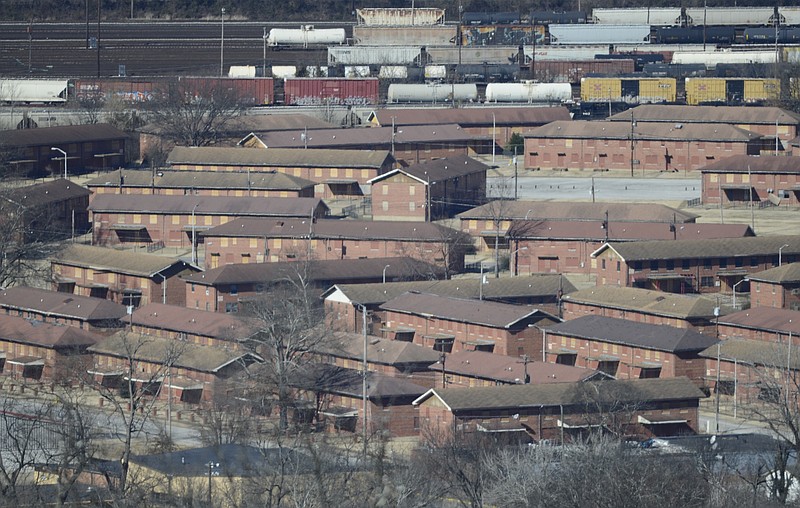Other City Council highlights
The Council voted 9-0 to approve a $14.2 million upgrade to the Moccasin Bend Wastewater Treatment Plant to improve sewage processing capacity. The upgrade calls for the construction of two holding tanks, each measuring 110 feet in diameter. The project is part of Chattanooga’s environmental mandate to eliminate sewage overflow into the Tennessee River.
Chattanooga might put another $1 million or more into the site of the former Harriet Tubman public housing site to get it shovel-ready for industrial redevelopment.
The city has put more than $7.1 million into the 40-acre East Chattanooga property since 2014, when the city took it over from the Chattanooga Housing Authority. The city paid $2.6 million to purchase the land and $4.4 million to demolish 440 housing units.
Since then, the city's Department of Economic and Community Development and the Chattanooga Area Chamber of Commerce have studied how to relocate a 24-inch sewer line that divides the property and prevents construction over its course.
On Tuesday, Charles Wood, vice president of economic development for the Chattanooga chamber, told the council the state might kick in as much as $500,000 toward a proposed $1.5 million project to move the sewer line to the northern and western perimeter of the site. The new path would follow Sholar Avenue and the adjacent railroad tracks.
"From a consulting perspective, relocating that sewer line effectively eliminates a risk for a company," Wood said. "Every time we can eliminate a risk that a company is looking at when they're making a decision on where to locate, then that gets us closer to the end goal of the company locating and announcing new job creation."
The Tennessee Department of Economic and Community Development has $6 million in grant money this year for removing local barriers to development, Wood said. The department awards the grants in May and projects must be completed within 18 months. Chattanooga must agree to match awarded grant dollars, and the grant application needs a resolution from the council committing to the project.
Council members questioned how accurate the $1.5 million price tag would be once the city put the project up for bid after City Engineer Bill Payne told them another proposed sewer line route, running along the Tubman site's eastern and southern edges, had grown from $1.5 million to $4 million in two years.
Wood told the council he would check into whether the city could back out of the project if it became unreasonable to fund.
The Tubman site is the largest and best-prepared industrial development site in Hamilton County, Wood said. Although it faces challenges of redevelopment, it is flat and has access to infrastructure.
"The goal of that property is really to serve as a catalyst in East Chattanooga, so that you have a big employer impact, as well as a big tax impact," Wood said.
Council Chairman Moses Freeman praised the idea of having the site occupied by a business and be on the tax rolls.
"To get the opportunity to get to finally stop investing and begin to generate some income is the best thing that could ever happen to us as a city and a community," Freeman said.
In other business, the council also received a six-month update on form-based codes, the the new downtown zoning rules which went into effect in the summer. The codes revolve around appearance, streetscapes, pedestrians and motorists as opposed to residential, commercial or industrial uses.
Form-Based Code Committee members, who review building applications, said the new rules have appeared to work well, so far, with new developments.
Karen Hundt, director of community planning and design for the Regional Planning Agency, said planners may consider code tweaks for adding an extra story to a building, tree spacing requirements and development of street networks where none exist.
Council members asked planners to consider having the committee take on zoning appeal matters in the future.
Contact staff writer Paul Leach at 423-757-6481 or pleach@timesfreepress.com. Follow him on Twitter @pleach_tfp.
